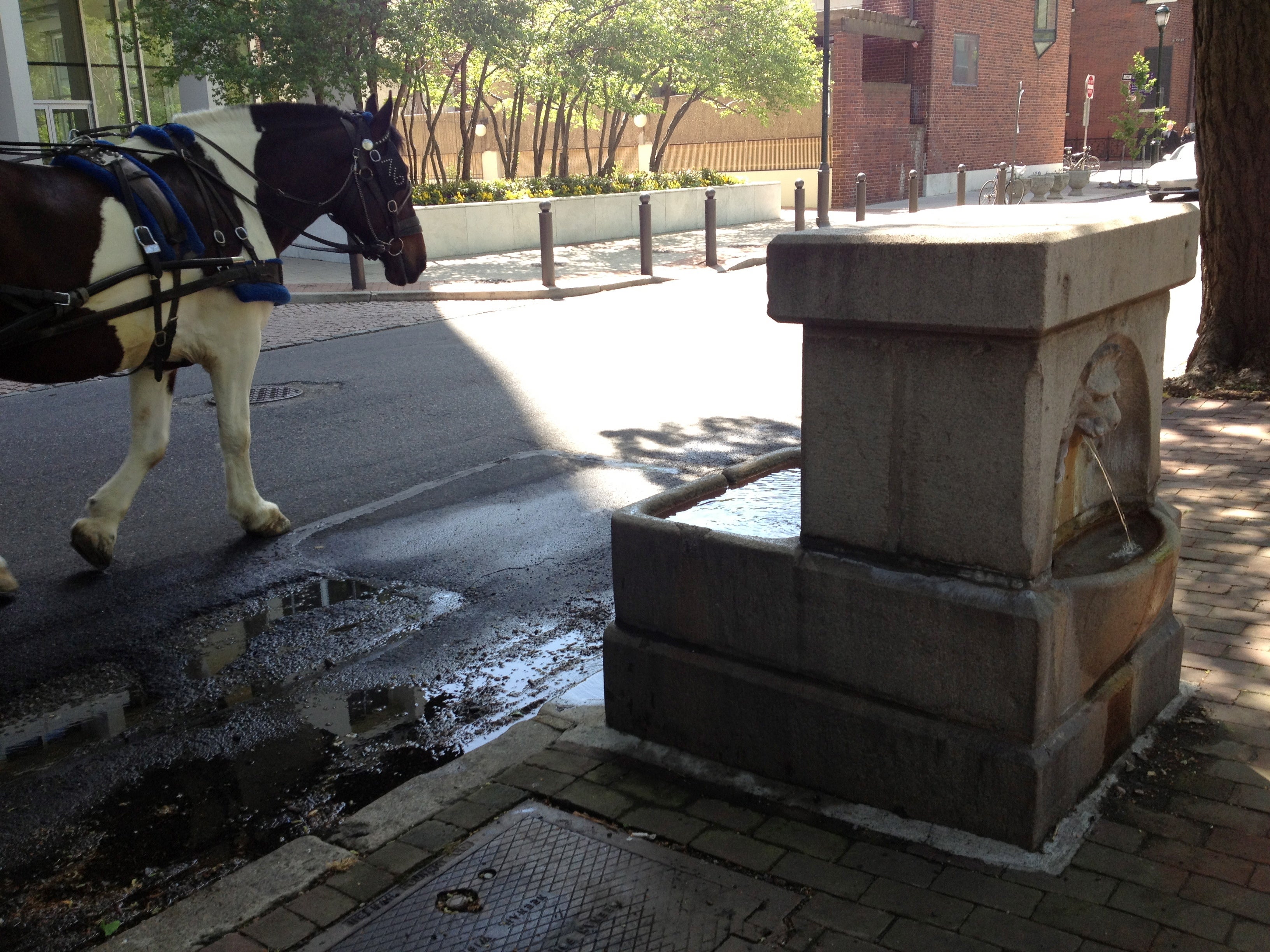No horsin’ around: L+I board upholds sanctions against carriage company

The old-fashioned buggies that pull tourists around Philadelphia’s historic sites are a staple of Old City and Independence Mall. But there may soon be far fewer horses prancing the city streets, as the city threatens one of the last carriage companies in the city over its treatment of animals.
On Tuesday evening, the Board of Licenses and Inspections Review upheld sanctions against the Philadelphia Carriage Company, one of only two remaining horse-drawn carriage companies in the city. During a February inspection of the Callowhill property investigators found the building to be unsafe. Licenses and Inspections (L+I) inspectors discovered more violations in June and again in September, most describing unsafe conditions for the horses. Many were found to be unfit for work during the June inspection.
“There is no adequate room in the stables for these horses, which can exceed 2,000 pounds each, to lay down, turn around, or express natural movement,” said Audra Houghton, director of operations at Animal Care and Control Team (ACCT), which joined L+I in the inspections. “There was at least one horse that was heavily stained with both manure and urine on both his chest, legs, and haunches.”
City inspectors described stalls that were too small for horses, with inadequate, and damp, bedding. There is nowhere in the vicinity for horses to pasture — a vacant lot that once served that purpose is now a condo building.
Inspectors also described the dumpster that the company places the horse manure in is too small as well, and it continually seeps waste onto the street. The stables also suffer from an abundance of pests, like mice, which the company did too little to control. Houghton said she even offered — multiple times — to retain the free services of some barn cats for the Philadelphia Carriage Company.
But Han Hee Yoo, who helped run the Philadelphia Carriage Company for almost 40 years, insisted that she does right by the horses in her care. She said that inspectors always arrive in the morning, and her company often cleans the stables in the afternoon. The horses are given long breaks in the country every year whenever they appear to tired or unhealthy.
“Let them run around, having fun, when they feel better we bring them back,” said Yoo. “It depends on the horse’s situation. Sometimes two months, sometimes three months. All of them [go] at least a couple times a year.”
Yoo started working for the company in the early 1980s, when her husband helmed the operation. He died a few years ago, however, leaving her the sole owner. Yoo hopes to sell her building, which is a former wire spring factory. Callowhill is no longer a low-value, industrial real estate market; the stables site will be a more profitable home for people than horses.
The board of L+I review voted unanimously to uphold the city’s findings against Yoo’s company. Although Yoo refused to speak with reporters after the hearing, her lawyer, Barry Penn, said they planned to appeal the case to the Court of Common Pleas.
“She has to stay in business,” said Penn. “This is her livelihood. Until that building is sold she has to earn her livelihood. So we will appeal.”
UNSTABLE CONDITIONS
There used to be five carriage horse companies in the city, Penn said. Now there are only two, with the other being the much larger ’76 Carriage Company. He believes they will soon be the only such business left in Philadelphia.
Janet White of the activist group Carriage Horse Freedom alerted Councilman Mark Squilla, who represents the area, to conditions at the stables earlier this year. White said conditions at the Philadelphia Carriage Company should not be allowed to persist.
“I think it needs to be shut down not just for the safety of the horses, but for public safety,” said White.
But it is unclear what the city will do. L+I’s spokesperson, Karen Guss, would only say the city departments involved in the case will be evaluating their options over the coming days.* But in an email to White and journalists a week ago, when the hearing was announced, Councilman Squilla made his opinion plain. “We hope that this will be the last straw for PCC,” he wrote.
*This sentence has been edited to reflect that numerous agencies are involved, not just L&I.
WHYY is your source for fact-based, in-depth journalism and information. As a nonprofit organization, we rely on financial support from readers like you. Please give today.






